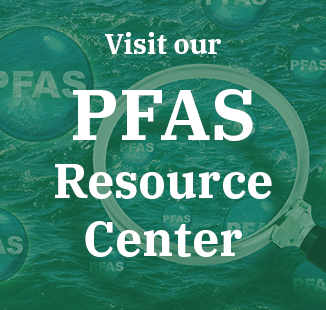Environmental

Virtually all companies in all industry sectors are faced with myriad of federal, state and local laws and regulations related to environmental, health and safety (EHS) matters. Shipman’s multidisciplinary environmental team advises clients on not only existing EHS requirements, but also industry standards, and emerging developments with respect to environmental legislation, regulation, policy, and management on a national, regional and local level.
Our environmental practice has been recognized consistently by Chambers & Partners USA, the nation’s preeminent guide to law firms and individual attorneys. According to Chambers USA, "Shipman is unique in that it has regional knowledge and partners who have worked on a national and international level.” Several of our environmental lawyers have advanced degrees in the sciences, have clerked for state and federal courts and/or have worked for state EHS regulatory agencies/legislative offices and many have been selected as Super Lawyers®, a national rating service designating lawyers who have achieved a high degree of peer recognition and professional development.
Our national and regional clientele includes manufacturers, developers, lending institutions, educational institutions, healthcare entities, insurance companies, energy companies, and private clients. Our level of service and sophistication of clients across substantive and geographical areas distinguishes us from other firms.
PFAS
Per- and polyfluoroalkyl substances (PFAS) are a group of human-made chemicals that encompass ~4,000 different compounds, many around since the 1940s. PFAS are found in commonly encountered products, including non-stick coatings, waterproof fabrics, firefighting foams, car wash soaps/waxes, floor waxes, architectural resins, cosmetics and other consumer products.
Counseling, Permitting and Transactional Support
Shipman’s environmental lawyers routinely provide business and compliance counseling, permitting and transactional support on key federal and state environmental, health and safety requirements to clients in various industries, including construction, business and finance, healthcare, education, energy, insurance, manufacturing, specialty chemicals, maritime and real estate.
Environmental Litigation and Enforcement
Shipman’s environmental litigators represent clients in administrative, civil and criminal enforcement and litigation matters across the full range of environmental sectors. We vigorously advocate for our clients to resolve difficult environmental issues while keeping our focus on the client’s end goals.
Industrial and Specialty Chemical Compliance
Shipman’s lawyers in the industrial and specialty chemical compliance practice assist manufacturers, importers, distributors, processors, laboratories and healthcare facilities with placing new and existing chemical substances into the marketplace, keeping the substances in commerce and properly handling and/or disposing of them.
Environmental Insurance and Risk Management
Shipman’s environmental lawyers regularly advise on numerous environmental insurance and risk management matters, both regionally and nationally. We counsel our clients with innovative legal risk management strategies (including the use of environmental insurance and other liability transfer strategies) to box in risk.
Emergency Response and Natural Resource Damages
Members of our practice have developed a national reputation in the area of oil and chemical spills, including emergency response and the assessment and restoration of natural resource damages (NRDs), representing domestic and international energy, manufacturing, shipping and insurance clients in both the aquatic and terrestrial environments across the country.
Clean Energy and Renewable Fuels
Shipman's clean energy and energy efficiency lawyers assist clients with clean energy projects, including solar, fuel cell, combined heat and power, geothermal and waste to energy. Our services include permitting and securing government and market incentives and financing to implement energy and cost-saving strategies.
Workplace Environmental, Health and Safety
Workplace environmental, health and safety (EH&S) requirements under both the U.S. Occupational Safety and Health Administration (OSHA) and state EH&S agencies (e.g., Connecticut OSHA (CONN-OSHA)) requirements are complex, evolving and stringent. For employers, particularly those in industries susceptible to workplace injuries and safety hazards, it is imperative to have an experienced legal team to help navigate the regulatory landscape and to create a safe and healthy work environment.


